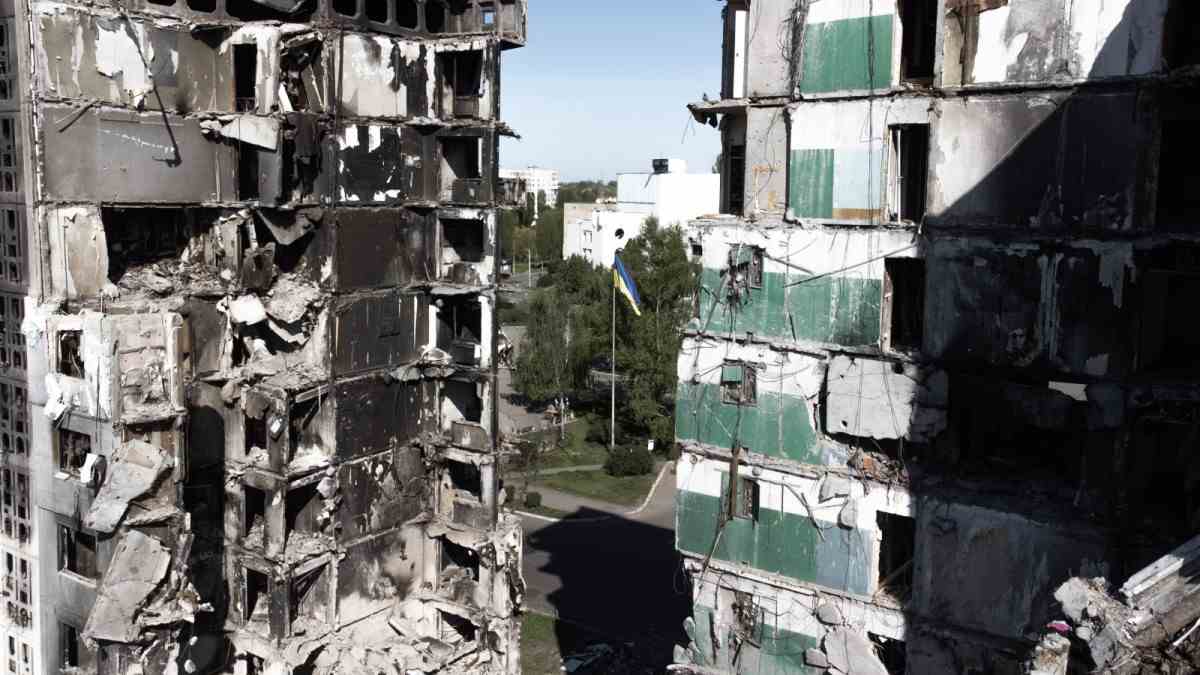Most of the time, says Olaf Hofmeister, the emotional problems come with a time lag. More urgent are the acute practical things: an apartment, a place at school for the child, a language course, maybe physical problems. “First of all, you get applications in front of your nose, you probably have a language barrier,” says the head of the Migration and Social Counseling department at the Diakonie in Hof. you work. Only when things have calmed down do you notice: “I’m not feeling well.”
More than 50,000 people have arrived in Bavaria since the beginning of the war in Ukraine. Sirens, bombs, flight: many of them bring back images of the war in their heads. They are shaken, sometimes traumatized – and come across an exhausted and regionally unequally distributed psychological support system. How can the burdens in the crowd be absorbed?
There is no lack of good will. Initiatives have emerged in many places. The Ministry of Social Affairs has activated a hotline. The Association of Statutory Health Insurance Physicians keeps a list of 300 names of psychologists who have agreed to help quickly if necessary, as do twelve members of the Bavarian Chamber of Psychotherapists with the appropriate language skills. The emergency services of the Bavarian crisis service are also ready to be there quickly.
One of them is Richard Hörtlackner. The psychologist, family therapist and supervisor has already had several assignments with Ukrainian families. “Now the fear is coming, bit by bit,” he says. A nation that is being attacked by its supposed brother people: that leaves many people feeling deeply insecure. Especially when the personal drama doesn’t end after the escape. He describes the case of a mother who found out about the death of her 16-year-old son in Kyiv, then drank the entire liquor cabinet of her host family and threatened to hurt herself. She was taken to a clinic and her two young children were put in foster care.
Group talks for mothers, art therapy for children
The “Taff” (“therapeutic offers for refugees”) project, which runs at ten Diakonie locations throughout Bavaria, is also about quick help. The project has existed since 2014 and was recently awarded the Bavarian Integration Prize. Olaf Hofmeister in Hof, Upper Franconia, explains that he is about stabilizing, first of all clarifying that it is okay if someone is doing badly.
Since 2015 you can see that the topic is often shameful. In group therapy sessions, Taff, for example, meets mothers who are under stress or who notice changes in their children. In this way, a short line to psychologists and therapists should also be established.
Volunteers are also helped, for example if they feel overwhelmed when refugees start talking: “We strongly advise against asking about trauma,” says Stefan Schmid, who runs Taff from Munich. It is better to listen and, if necessary, to provide help. It’s just not always that easy – especially when those affected don’t speak German or English. What Taff tries to avoid with children with art therapy often becomes a problem with adults.
Translators for a therapy can only be billed to the health insurance company in exceptional cases. From June onwards, when people will no longer be treated as asylum seekers, that will no longer be possible. In order to still be able to act in an emergency, the Bavarian crisis services are planning a step that has proven itself in clinics for a long time: Translators should be able to be switched on within seconds.
This becomes all the more important as the situation worsens. Schmid von Taff sees a shift coming: First of all, people who were worried about relatives who were left behind came. Soon more refugees would come from direct combat areas – with probably directly traumatic experiences. The necessary offer, says Bruno Waldvogel, Vice President of the Bavarian Chamber of Psychotherapists, could not possibly be produced in a few weeks. “There needs to be a fundamental improvement in psychotherapeutic care,” he says.
“It is important that these stresses do not become stress disorders.”
Bernhard Seidenath knows that too. This is precisely why the chairman of the health committee in the state parliament (CSU) relies primarily on low-threshold, as he says, “down-to-earth” help. “We saw from the start that people came with immense burdens,” he says. Rockets, shots, air raid alarms – every family has probably experienced something like that. “It is important that these stresses do not become stress disorders,” he says.
Precisely because the system for psychotherapy is already overloaded, he relies on psychologists for Upper Bavarian districts who offer help on a voluntary basis. Translators can also be used for this, but so far few people affected have reported. “I appeal to you to take advantage of the offer,” he says, asking the district or him directly.
Many are still busy arriving, official procedures and school registrations are still crowding out memories of home for many. But the aid organizations assume that the need will grow over time. The challenge will be that people find access to the various offers. “We have to coordinate what we have better,” says Hörtlackner, the man from the crisis service.

